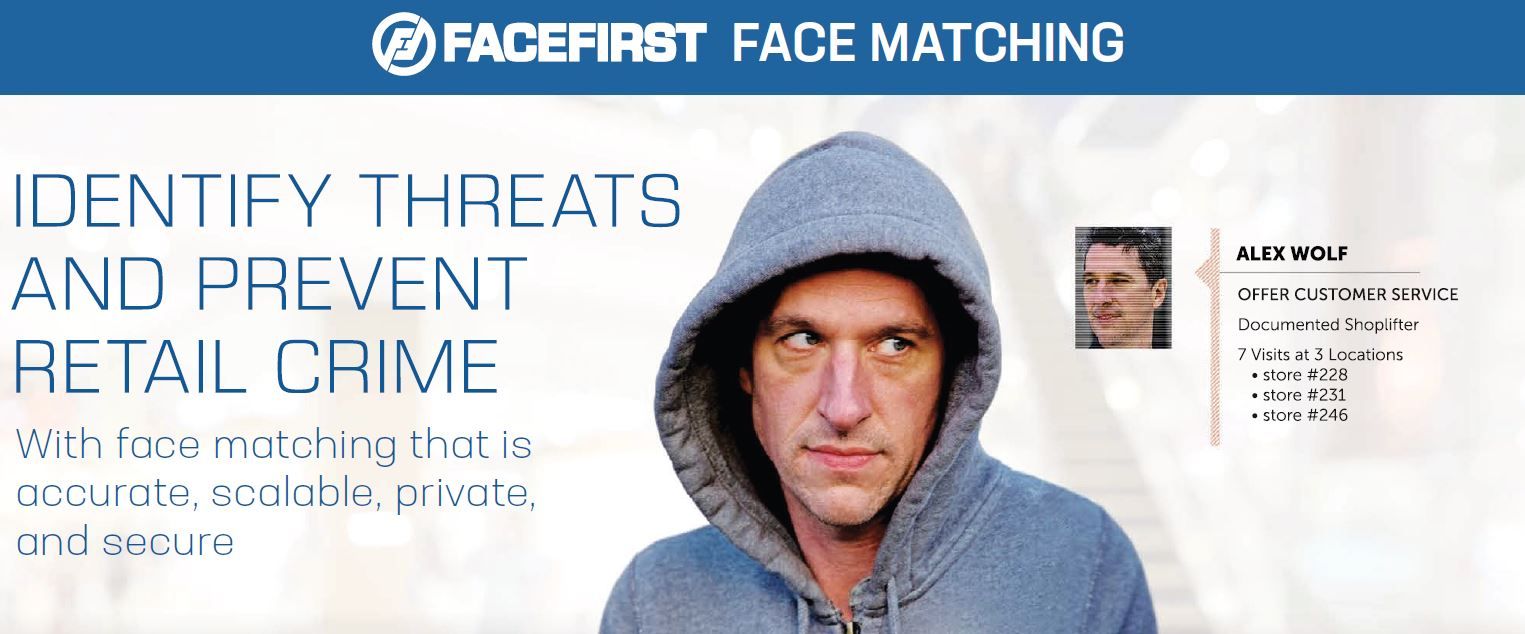Demand for biometrics to reduce retail crime continues to rise, but the risk of flawed deployments of the technology are also seen in an unfortunate incident and an allegation of mass privacy violations.
The British Retail Consortium is urging authorities to allocate more resources to reducing retail theft as part of its Get Tough on Retail Crime” campaign, Retail Week reports. It is not just theft that the BRC is concerned about, noting that abuse and violence against retail staff increased from 870 incidents per day in 2021-2022 to 1,300 UK-wide in 2022-2023.
The call is going out to candidates for the Police and Crime Commissioner position, for which elections will be held May 2.
The government announced a £55.5 million investment in facial recognition over the next four years just last week specifically to reduce shoplifting and abuse against shopworkers.
Corsight AI has released a video demonstrating the use of facial recognition to detect when people who have stolen from a retailer previously reenter its premises.
Retailers can use Corsights’ software to add a facial image captured from someone who steals from their store to a watchlist. The software then alerts a staff member when the individual returns to steal again. The faces of people who have not been added to the watchlist are blurred in footage to protect their privacy.
The company’s EVP of Global Business Development Ofer Ronen notes an additional application for retail facial recognition and analytics in an interview with Security Journal Americas. He suggests the company’s “Facial Intelligence” can be used to recognize when customers are waiting to purchase high-value goods kept under lock and key.
Implement carefully or pay the price
Foodstuffs, the parent company of New Zealand supermarket New World, has apologized after an incident in which a Maori woman was falsely identified as a shoplifter and confronted by staff, RNZ News reports. The woman also says she was not made aware that the store was using facial recognition until after she was confronted.
Foodstuff’s pilot of facial recognition immediately proved controversial, and is being investigated by New Zealand’s Privacy Commissioner.
The retailer uses a facial recognition system and a process of human review by two trained individuals to confirm or deny a candidate match.
“In this case, our team didn’t err on the side of caution and got it wrong,” a Foodstuffs spokesperson said.
The false match may indicate that the biometric system used is not as effective for Maori and other people with darker skin.
Interestingly, a spokesperson for the Privacy Commissioner’s Office makes an over-generalization error in a comment about facial recognition and demographic differentials: “Global evaluations of even the most accurate FRT software show that false matches are more likely to happen for people of colour, particularly women of colour.”
The global evaluation of demographic differentials by NIST actually found that the majority of algorithms produce demographic differentials, or bias, in match results, the most accurate ones show little or no evidence of bias.
Meanwhile in the U.S., Target has been accused of failing to collect informed consent from customers before processing their biometrics with a facial recognition loss-prevention system.
The class-action lawsuit was filed in Illinois under the state’s Biometric Information Privacy Act (BIPA), and NBC Chicago reports that employees of the retail giant have discussed its facial recognition system publicly online. The retailer operates 14 investigation centers and two forensics labs in the U.S. which process video and “analyze fingerprints,” according to the complaint.
Related Posts
Article Topics
biometric-bias | biometrics | BIPA | Corsight | facial recognition | New Zealand | retail biometrics | UK
Latest Biometrics News
Identity verification provider Socure has announced the launch of its next generation DocV, now including enhanced deepfake selfie biometrics detection…
The EU’s AI Act is done, and no one is happy. Having been adopted by the European Parliament in March…
The latest craze sweeping the United States – legislation to protect kids’ data and overall online safety – has its…
A team of fraudsters has been convicted for what was described as “the largest case of benefit fraud in England…


